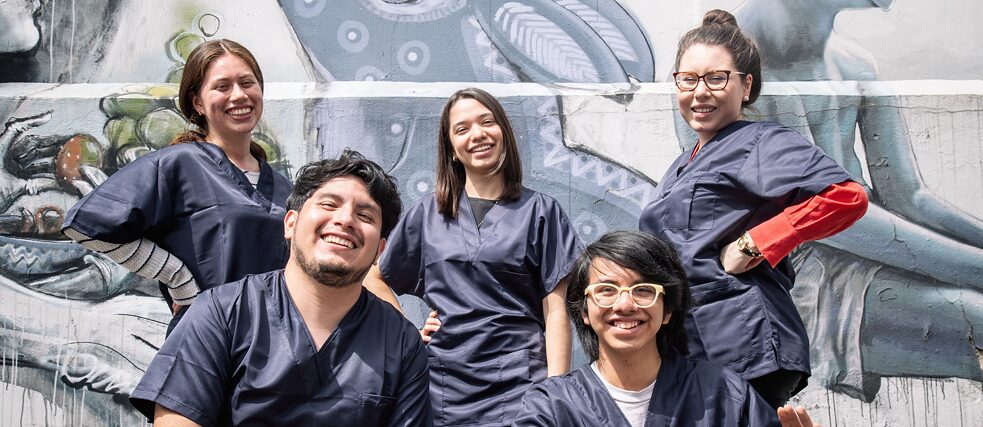Training Partnerships in Latin America
Here to Stay

The “Training Partnerships in Latin America” (APAL) programme prepares school students and alumni of PASCH schools in El Salvador and Mexico for a dual training course in Germany. Since the beginning of 2021, the Goethe-Institut Mexico, the Federal Employment Agency and hospitals in various German cities have been working hand-in-hand on this. Ámbar Navarro Becerra, currently training as a radiology assistant at the University Hospital Bonn, reports on her experiences.
What does APAL involve?
It is a dual training course in Germany. In other words, you study and work at the same time. The Goethe-Institut helps with the intercultural and linguistic preparation, the documentation and any other questions that arise.
Why did you apply for APAL?
I have always been interested in German. My German teacher at the PASCH school in Guadalajara, Mexico, told me about the programme. It’s a great opportunity: your flight and the language courses are paid for. And I get a monthly salary. I was able to come to Germany with the help of the Goethe-Institut.
What were your preparations like at the Goethe-Institut in Mexico?
I can only say: excellent! I really liked the way the teachers taught. As far as the cultural preparations are concerned, I found them extremely good. But I’m not sure you can really prepare yourself for what it’s like actually being here. You can only get a real understanding of it when you are living here.
Do you think there is any difference in moving to Germany with or without a specific programme?
Yes, we got a lot of help with the organisation, both in Mexico and on arrival in Germany: we did not have to look for somewhere to live, there was no deposit to pay and we already had a bank account. And if we had any questions, there was always someone available to contact. A friend of mine at the hospital came to Germany as a fully trained nurse. She clearly had some difficulties as a result. We are prepared in every way necessary for life in Germany. Somehow I get the feeling that we can integrate better because we are younger, we have been prepared and we don’t just work, we are also being trained.
What does living in Germany mean to you?
I think that it’s an environment full of love, of humanity. The organisation was straightforward, but it was not easy to open the door and set out on the street alone every day. There were a few hurdles to overcome, but at the same time it has made me grow a lot.
What does your week look like now?
At the moment, it’s great because I do the practical part on a Monday. From Tuesday to Friday, I have theory lessons. I go to the university by bike. When I am finished, I ride home and after the gym, I study as hard as I can so that I can get ahead. How do you see your career opportunities in Germany? I would like to finish my training and then get a job here. At the moment, I see my future career developing here in any case. What would you say to future participants in the programme? I would encourage them to take part. I think that the Goethe- Institut and everyone else involved will always support you. They always try to understand you. You just have to give yourselfa little push.
The interview was carried out by Tanja Olbrich, Head of the Language Department at the Goethe-Institut in Mexico, and Michael Kobs, teaching expert in the PASCH initiative for Mexico, Central America and the Caribbean.